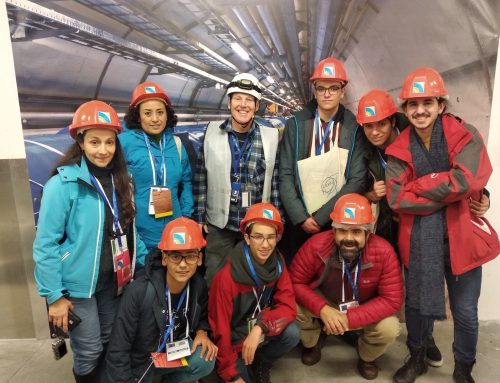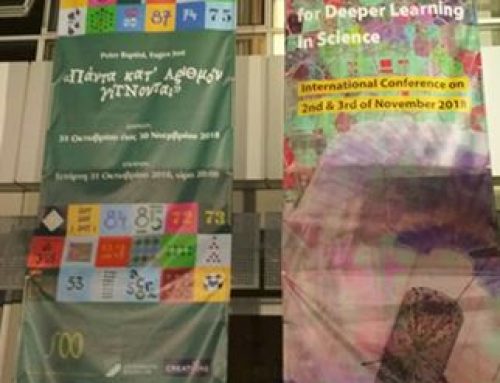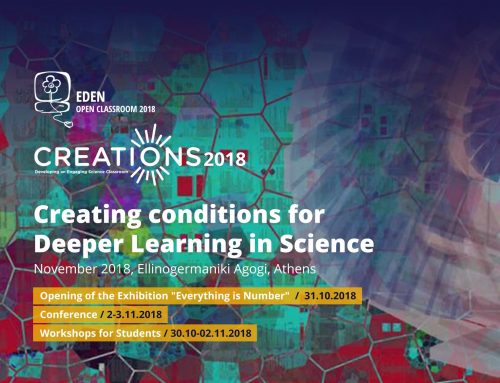
Quarks, the Big Bang, the multiverse and much more was thoroughly discussed this morning in Malta. There was no conference hall and no lecture room but a secondary school with 12-year-old students. The University of Malta in collaboration with the CMS experiment at CERN and the Department of Curriculum Management (DCM) of the Malta Government organised two pilot events to bring fundamental research and discovery closer to schools as part of the CREATIONS project.
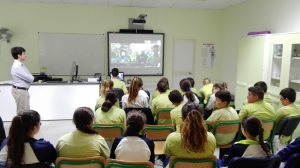 To be precise, CERN researchers entered Maltese schools with a virtual visit to the Compact Muon Solenoid (CMS) experiment, one of the largest particle detectors in the world, located at the Large Hadron Collider (LHC), the world’s strongest particle accelerator at CERN. On one end, in a warm and humid day, Maltese pupils were welcomed by Dr Silvia Verdolini and Dr Gianluca Valentino. Computer scientist at University of Malta and collaborator with CERN, Gianluca started the conversation on what matter is made of and on how small quarks are. On the other end, there was Dr Angelos Alexopoulos together with particle physicist Dr Tristan Du Pree talking in winter jackets and scarfs reporting from the CMS experiment on the French side of the LHC.
To be precise, CERN researchers entered Maltese schools with a virtual visit to the Compact Muon Solenoid (CMS) experiment, one of the largest particle detectors in the world, located at the Large Hadron Collider (LHC), the world’s strongest particle accelerator at CERN. On one end, in a warm and humid day, Maltese pupils were welcomed by Dr Silvia Verdolini and Dr Gianluca Valentino. Computer scientist at University of Malta and collaborator with CERN, Gianluca started the conversation on what matter is made of and on how small quarks are. On the other end, there was Dr Angelos Alexopoulos together with particle physicist Dr Tristan Du Pree talking in winter jackets and scarfs reporting from the CMS experiment on the French side of the LHC.
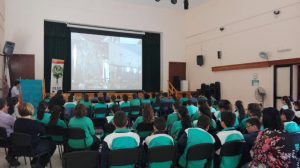 As part of the “Teen Science Cafe” initiative, the aim of the event was to show pupils what it means to be a scientist and how science works at the world’s largest particle physics laboratory. The conversation was soon stirred towards big science questions starting from Denzel, one of the young participants, that proudly cited Douglas Adams and asked for “the answer to Life, the Universe, and Everything”. From there we moved onto high-energy physics. Angelos and Tristan talked about particles, the buildings blocks of our Universe, how particle detectors like CMS work, and what it takes to build, operate and maintain such marvels of technology and engineering. The students then drove the conversation onto cosmology and astrophysics and asked what the Big Bang is, whether multiverses are a reality, and what is dark matter and dark energy. Finally the conversation finished with the advanced technologies involved in particle physics research and what contributions for the medical sciences have and will continue to come out of the research done at CERN.
As part of the “Teen Science Cafe” initiative, the aim of the event was to show pupils what it means to be a scientist and how science works at the world’s largest particle physics laboratory. The conversation was soon stirred towards big science questions starting from Denzel, one of the young participants, that proudly cited Douglas Adams and asked for “the answer to Life, the Universe, and Everything”. From there we moved onto high-energy physics. Angelos and Tristan talked about particles, the buildings blocks of our Universe, how particle detectors like CMS work, and what it takes to build, operate and maintain such marvels of technology and engineering. The students then drove the conversation onto cosmology and astrophysics and asked what the Big Bang is, whether multiverses are a reality, and what is dark matter and dark energy. Finally the conversation finished with the advanced technologies involved in particle physics research and what contributions for the medical sciences have and will continue to come out of the research done at CERN.
With this the CREATIONS project just got started in Malta. “The island got a taste of what is to come” says Dr Edward Duca, Malta project leader. Similar events will be organised starting from early next year: SciArt workshops will be launched at a local high-school, inviting students to harness their creativity by combining art and science inspired by particle physics and CERN.



